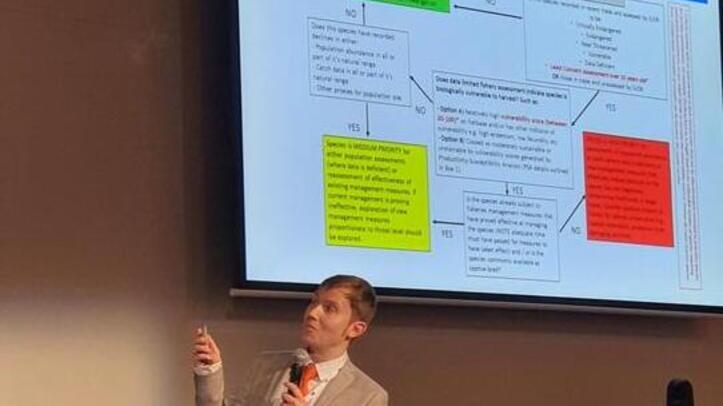The Ornamental Aquatic Trade Association (OATA) has presented a new framework to assess the international trade of fish species at a major conference in Australia.
OATA and global association Ornamental Fish International (OFI) have proposed a flexible framework that can be used by conservation body CITES to look at the more than 1,000 marine species currently being traded to determine which ones require further investigation into their vulnerability in order to establish if trade is sustainable or if further management measures are needed.
The proposal, which was presented by OATA’s scientific & technical advisor Dr Matthew Bond at the CITES Marine Fish Workshop in Brisbane, has the support of a number of pet trade bodies in Europe, North America and Australia.
The work project was first launched by CITES in 2019 following a proposal from the European Union, Switzerland and the United States of America, prompted by Fondation Franz Weber which is campaigning to stop the marine ornamental trade. The workshop also heard counter proposals organisations aiming to limit the fish species that can be traded in the home aquarium industry.
OATA chief executive Dominic Whitmee said: “This framework is based on an in-depth analysis of the actual species in trade, using data supplied by the industry rather than import data which we know has major flaws in it.
“This ensures priority can be focused on those species that are actively traded and are most biologically vulnerable to over-harvest. Our framework provides a flexible solution to enable CITES Parties to decide how to focus resources on the species most in need of further attention which is what we all want.”
OFI president Shane Willis added: “As part of this work we also reviewed all the global regulations and management measures currently in place for marine fish species to prove that our industry is far from being the uncontrolled and unregulated trade that is often claimed.
“However, we are concerned that key exporting countries and small nations are not represented at the workshop and we hope the Secretariat will make efforts to engage them before any decisions are taken. Otherwise this risks yet another scenario where developed western nations impose poorly informed opinions on less developed nations without a full and proper understanding or recognition of the issues they face. It is crucial to involve range states in any decision making from this workshop, along with the fishing communities who will be most affected by any decisions.”
The industry framework paper can be viewed on OATA’s website here.



